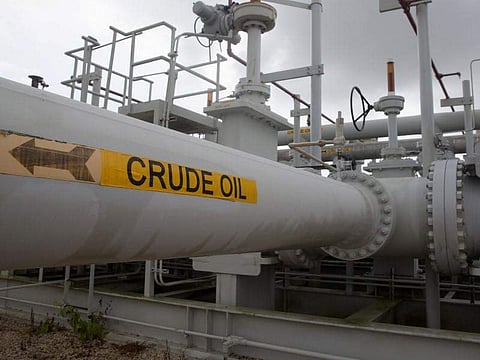

NEW DELHI: At least in the oil sector, the global health emergency posed by the spread of the novel coronavirus has come to the country's advantage.
India's oil import bill has fallen close to 10 per cent in FY20 as the increasing spread of coronavirus and demand squeeze globally has depressed the crude oil prices to about 30 a barrel now against a high of over USD 70 a barrel in September and again in January this year.
According to provisional data from Petroleum Planning and Analysis Cell (PPAC), in FY20 India's oil import bill slipped to USD 101.4 billion from a level of USD 111.9 billion in previous fiscal FY19.
The lower import bill last year came even as quantum of imports increased marginally to 227 million tonnes (MT) from 226.5 MT reported in the previous fiscal. The fall has come mainly on account of generally lower crude oil price in FY20 with the sharp decline of over 50 per cent witnessed in March.
The low oil price of around USD 20 a barrel in April, and expectation that crude may average between USD 30-40 a barrel in FY21, country's oil import bill could reach its all time low levels in many many years in current fiscal. The potential is it could fall to $ 64 billion in FY 21, the same as FY 16 when crude prices slipped below USD 26 a barrel.
A one dollar fall in crude oil price results in reducing country's import bill by almost Rs 2,900 crore while a rupee fall in value of currency against dollar results in increased spending by up to Rs 2,700 crore. "The oil imports bill may well fall below USD 100 billion this year as coronavirus could keep demand suppressed despite global effort to reduce production and reduce the level of over supplies in the market to stabilise prices. This could bring down the country's oil purchase bill sharply this year," said an oil sector expert asking not to be named.
While India imported crude oil worth USD 112 billion in FY 19, its import bill transited substantially lower in the previous three financial years with oil import bill standing at mere USD 64 billion in FY16 when oil prices slipped on over supplies, especially with the entry of US shale oil. Lower volume of crude processing by fuel refiners is also expected to have an impact on import bill.
For India lower oil prices acts as big incentive as the country depends on imports to meet 86 per cent of its oil requirements. Lower import bill would also have positive impact on country's fiscal deficit that had already slipped from earlier targets in wake on higher government expenditure this year to curb falling GDP growth.
The dependency of imported crude (on consumption basis), on the other hand, has increased from 82.9 per cent in FY18 to 83.7 per cent in FY19 and further up to 85 per cent in FY20 meaning we are producing less oil and depending more on imports to meet domestic requirements. This dependency has consistently increased in all five years of the Modi government.
Crude production in India has stagnated around 35 MT for the past decade. In FY19, domestic crude production has dropped to 34.2 MT from 35.7 MT in the previous year and it has further dropped to 32.2 MT in FY20. Despite best efforts of the government, domestic oil production has not increased.